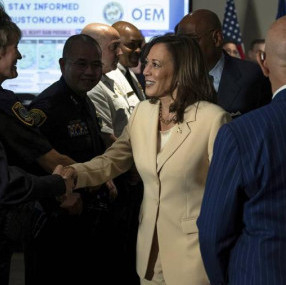The informal G7 club, which Russia was part of between 1997 and 2014, involves the United States, Canada, Great Britain, Germany, France, Italy and Japan. Over two and a half days, the G7 foreign ministers have been meeting in London, both in a bilateral format and all at once. Their face-to-face meeting ended on Wednesday, May 5 to become sort of a prologue to the upcoming June summit in England.
The ministers had many issues to discuss: from relations with Russia and China to the conflicts in Syria, Libya, Yemen and Myanmar; from the human rights situation to a fair approach as regards distributing the coronavirus vaccine to climate change. Despite the parties' assurances of the ongoing search for common approaches to key global issues, the London talks have yielded no major decisions, which is generally appropriate for the Group of Seven, which many experts consider an obvious anachronism in the present-day multipolar world.
A noteworthy detail here is that the main focus and time of the ministers was clearly devoted to discussing relations with two countries that are not members of this association, Russia and China. For one, they spent an hour and a half discussing Russia, which is much longer than discussions concerning Afghanistan or Syria. The Russian issue was, by the way, reflected in the final communiqué as well. Moscow poses a threat to the rule-based international order, including security in cyberspace and misinformation, as participants in the meeting put it.
It is necessary to point out that the Group of Seven is interested "in stable and predictable relations with Russia", but is going to keep strengthening collective capabilities of its partners to deter Russia's behavior. Also, the G7 foreign ministers have once again urged Moscow to investigate the alleged poisoning of Alexei Navalny, the founder of Anti-Corruption Foundation (included by the Russian Ministry of Justice in the register of organizations performing functions of a foreign agent – ed. note). Obviously, this "fad" with Western rhetoric will stay on Russia-concerning agenda for quite some time.
In turn, China "got its lumps" for violating the rights of national minorities, attempts to redraw the "democratic electoral system" in Hong Kong and jabs at Taiwan. Moreover, the G7 foreign ministers expressed concern about Beijing's methods in trade and investment, which they think undermine "free and fair economic systems".
By and large, even before the arrival of his colleagues in London, British Foreign Minister Dominic Raab said in an interview with Reuters that the Group of Seven would advance the "rapid response mechanism" to counter "Russian propaganda" and fake news. Russian Foreign Ministry spokeswoman Maria Zakharova said in response that those accusing Moscow of spreading propaganda were mired in it themselves. This primarily refers to the UK, which is clearly leading the way when it comes to anti-Russian prejudice.
At the same time, we shall underscore that reproaches against Moscow and Beijing have been heard repeatedly both from individual states and from some international associations. However, the communiqué of the last G7 foreign ministers' meeting features no escalation in tone that experts predicted in the context of Democrat Joe Biden's coming to power in the United States. In general, this document suspiciously resembles a certain political declaration, designed not so much to push the G7 states to a constructive solution to existing problems, as to assure those engaged in this informal club of the identity of their stances and approaches on certain problems. In particular, of their having common ideological opponents and enemies, in the fight against which they could "close the ranks" and present a united front. Those opponents and enemies are intended to be read as Russia and China, most notably.
Another goal pursued by the current US administration at international forums, including the G7 format, is quite obvious: implementing President Biden's campaign task to return the US to its former place on the global stage. Despite White House's declared vector to establish relations with many countries that were damaged under Republican President Trump, Biden's desire to expand multilateral relations is ill-timed. After all, a huge number of people across the globe are still in physical isolation over the coronavirus pandemic, including in G7 countries. So the planned face-to-face summit scheduled for June 11 to 13 this year in English Cornwall, remains highly doubtful.
If everything goes well, this will be the first event of such a scale for Biden to take part in the presidential capacity. However, the outcome of this week's London meeting of G7 foreign ministers gives no reason to hope that the summit will focus on seeking for constructive ways of interaction in the 21st century, instead of arranging another witch-hunt for Russia and China.
By the way, during his stay in Europe, Joe Biden, according to the US State Department, intends to meet with Russian President Vladimir Putin. However, the Kremlin has yet to confirm this. But it should be noted that the American side is really interested in it. It is no coincidence that, unlike his British counterpart Dominic Raab, who sharply rebuked Moscow, statements by head of the State Department Anthony Blinken regarding our country were not that aggressive but rather accommodating in nature, which can largely be explained by preparations for the meeting between the Russian and US leaders.
"We do not want an escalation with Russia, we prefer stable and predictable relations. If Russia moves that way, we will act likewise. I believe President Biden will be able to discuss this face to face during his meeting with President Putin," Blinken said.









